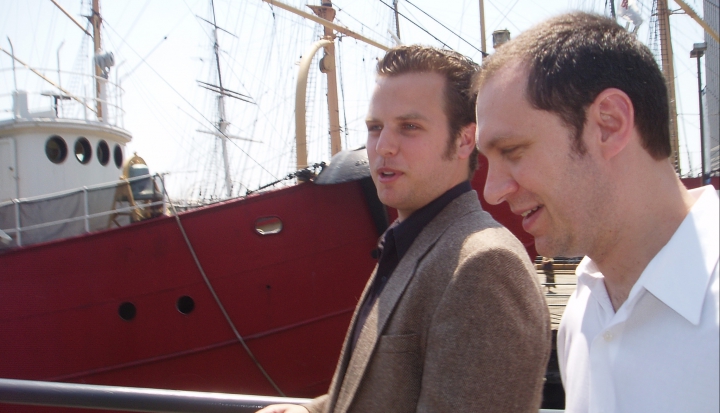It might not take a village to raise a Catholic priest, but it almost always takes at least one “encourager”—a person, priest or lay, who actively encourages a young man to consider the diocesan or religious order priesthood. The number of encouragers that really makes the difference is that familiar numeral that looms large in the Catholic psyche: three. If three people have told you that you might make a good priest, you’re far more likely to seriously consider the possibility.
These are among the findings of a Boston College report issued this week examining the variables that promote vocations to the priesthood, based on a study by the Center for Applied Research in the Apostolate (CARA) of 1,500 men who were either studying for the priesthood or recently ordained. The BC report combines the study findings with the analysis of the study that emerged from the national Summit on Vocations to the Priesthood convened in 2013 at Boston College.
Although officially the report is titled College Experience and Priesthood, the subhead on the cover tellingly reads, “The Encouragers.”
Some of the report’s key findings:
- Men who pursue vocations to the priesthood were likely to have been encouraged by someone: a priest, a friend, a teacher, a family member.
- Men pursing priesthood are more likely to have attended a Catholic college or university, where they met priests as professors and had greater access to Mass and Catholic devotions and activities.
- Having had a spiritual director is one of the key indicators for those who pursue priesthood. Sixty-two percent of the men surveyed who went to Catholic colleges had a regular spiritual director, compared to 30 percent of those from non-Catholic colleges.
- Those who were encouraged by one person to consider priesthood are nearly twice as likely to consider priesthood as those who are not encouraged. And those with three “encouragers” would be more than five times more likely to consider a vocation than someone who never heard a word of encouragement.
- Many young men start thinking about the priesthood during their high school years.
- More never-married Catholic men have considered priesthood than previously suspected.
- Hispanics in the priesthood are wildly underrepresented relative to their percentage of Catholics in the U.S.—15 percent of those ordained in 2014 are Hispanic. Of students in Catholic schools today, only 14 percent are Hispanic—which means they are missing out on the chance to get to know priests and have other experiences that might nudge them to consider priesthood.
The report contains many recommendations for dioceses and religious orders about how to create a “culture of vocations” on campus, and it urges action on comparatively new realities like college debt in the tens of thousands among many young men hoping to enter the seminary.
The opening piece by Boston College’s Jesuit president Father William Leahy offers a rousing call to action. “It really starts with us who are clergy and vowed religious,” he says. “There is nothing as powerful as happy, fulfilled priests and religious. That is contagious.” And studies routinely show that priests are happy in their ministry. Leahy also urges priests, however, to “guard against pessimism” about the future of the church. Bracingly, he frames the question as a good leader should: “I would ask those of you who are directly involved in promoting vocations: Do you have a plan, is it comprehensive, do you share it, and are you consistent in its implementation?”
Image: ©rgbstock/muriellesw













